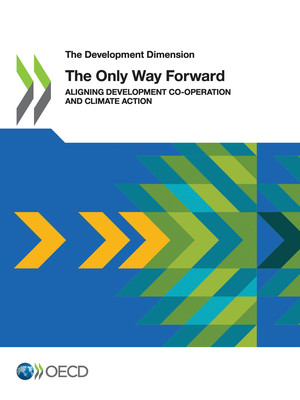copy the linklink copied!Foreword
At the 2018 United Nations Climate Change Conference in Katowice, Poland, the Secretary-General of the Organisation for Economic Co-operation and Development (OECD) launched a new OECD initiative focused on the alignment of development co-operation with the objectives of the Paris Agreement on climate change.
As countries prepare their next round of commitments under the Paris Agreement, it is timely to assess the progress that providers of development co-operation have made to date in accounting for climate change and aligning their activities with the objectives of the Agreement. As institutions that partner with developing countries to enable and safeguard sustainable development, development co-operation providers are pivotal to the transition that countries need to make to follow development pathways consistent with the Paris Agreement. With just a decade left until 2030, we are at a crucial moment in history – it is vital to identify, analyse and creatively overcome the major barriers that currently undercut coherent and effective climate action in developing countries and that thereby jeopardise sustainable development.
This report seeks to contribute to this effort by examining the imperatives, challenges and priority actions for development co-operation to align with the objectives of the Paris Agreement. It builds on the findings of key publications from recent years – including Investing in Climate, Investing in Growth (2017) and Financing Climate Futures: Rethinking Infrastructure (2018) – to illustrate how providers of development co-operation can use this opportunity to help developing countries to shift to low greenhouse gas emissions, climate-resilient pathways and ensure that the transition leaves no one behind.
The evidence is clear that development co-operation needs to actively support ambitious climate action to protect past development gains and help developing countries to become resilient and to prosper in the face of the climate crisis. Development decisions and interventions that are not consistent with the aims of the Paris Agreement risk locking countries into development pathways that exacerbate climate change, increase vulnerability to its impacts and miss the goals of the 2030 Agenda for Sustainable Development.
This report also offers instructive analysis and highlights priority action areas to inform the efforts of the increasing number of development co-operation providers that are already re-orienting to align their activities with the objectives of the Paris Agreement. The findings and recommendations of this report are intended as a guide for more ambitious climate action by providers and for their reflections on how to seize the co-benefits of combined development and climate action to support sustainable development.
The OECD expresses sincere appreciation to the members of the High-Level Advisory Group who supported this work for their leadership and advice. The OECD is also deeply grateful to the specialists from more than 30 organisations in the Informal Expert Group who have informed the growing body of literature on the topic of Paris alignment and contributed valuable comments and input to the report.
Metadata, Legal and Rights
https://doi.org/10.1787/5099ad91-en
© OECD 2019
The use of this work, whether digital or print, is governed by the Terms and Conditions to be found at http://www.oecd.org/termsandconditions.


